Leaders and Heroes
Pearl Buck (1892-1973)
Pearl Buck was a prominent white American novelist who won the Nobel Prize for Literature in 1938. The daughter of Presbyterian missionaries, she was raised in eastern China. After teaching English literature in Chinese universities for a few years, she began writing articles on Chinese life and culture for American magazines. She also composed several novels, including The Good Earth, which dominated bestseller lists and earned her the Pulitzer Prize in 1932. Pearl Buck was an adoption advocate and helped establish two adoption agencies, Welcome House in 1949 and the Pearl S. Buck Foundation in 1964. Buck donated the majority of her earnings, over $7 million, to better the lives of children eligible for adoption. Welcome House in particular was designed to help the mixed-race children of American soldiers in Asia.
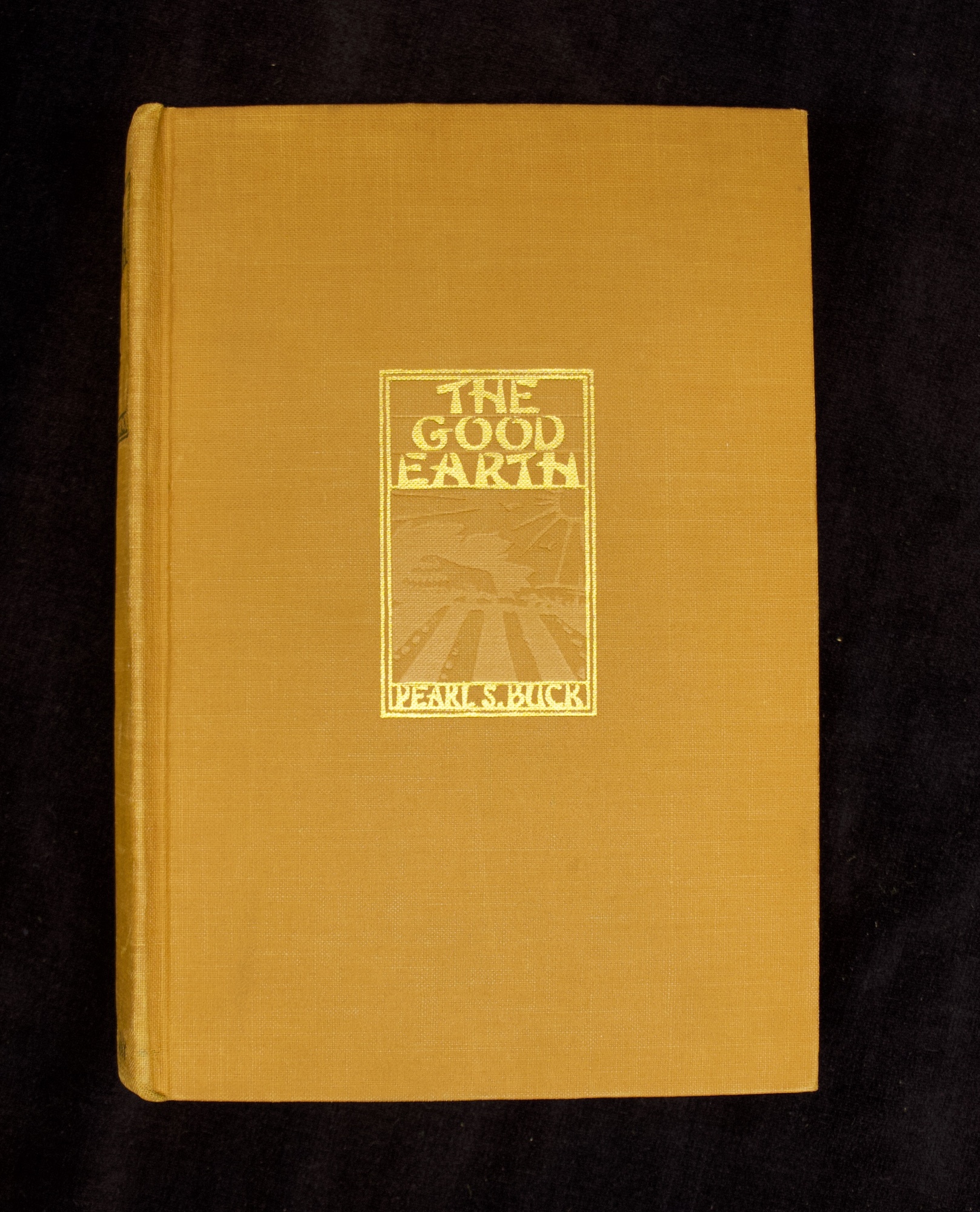
Cover; The Good Earth. New York: The John Day Company, 1931. PS3503.U198 G664 1931
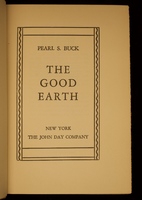
Endpapers; The Good Earth. New York: The John Day Company, 1931. PS3503.U198 G664 1931
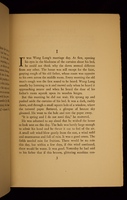
Title page; The Good Earth. New York: The John Day Company, 1931. PS3503.U198 G664 1931
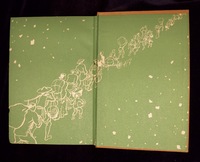
Page 1; The Good Earth. New York: The John Day Company, 1931. PS3503.U198 G664 1931
Pearl Buck earned her place among our heroes exhibit not just for the prizes she won, though her accomplishments are an impressive feat for a woman writing in the 1930s, but rather for her ability and desire to articulate and share perspectives on the diverse peoples that she met and interacted with during her times abroad. In 1932, she gave a speech “Is there a case for the foreign missionary?”, subsequently printed in Harper’s Magazine the following year, in which she criticized contemporary Christian missionary efforts in China for their high-handed and culturally ignorant approach. She emphasized the need for compassionate missionaries to learn and respect the cultures where they hoped to win converts, rather than assuming the inherent superiority of the western traditions.
Special Collections has several materials written by Pearl Buck. For this exhibition, we include the 1931 edition of The Good Earth as well as a fine press edition of her translation of All Men Are Brothers, a 14th-century novel considered to be one of the four great classical novels of Chinese literature. We include these two selections because of The Good Earth is indicative of the importance of Pearl Buck and the translation may serve as a reflection of her investment in multicultural respect.
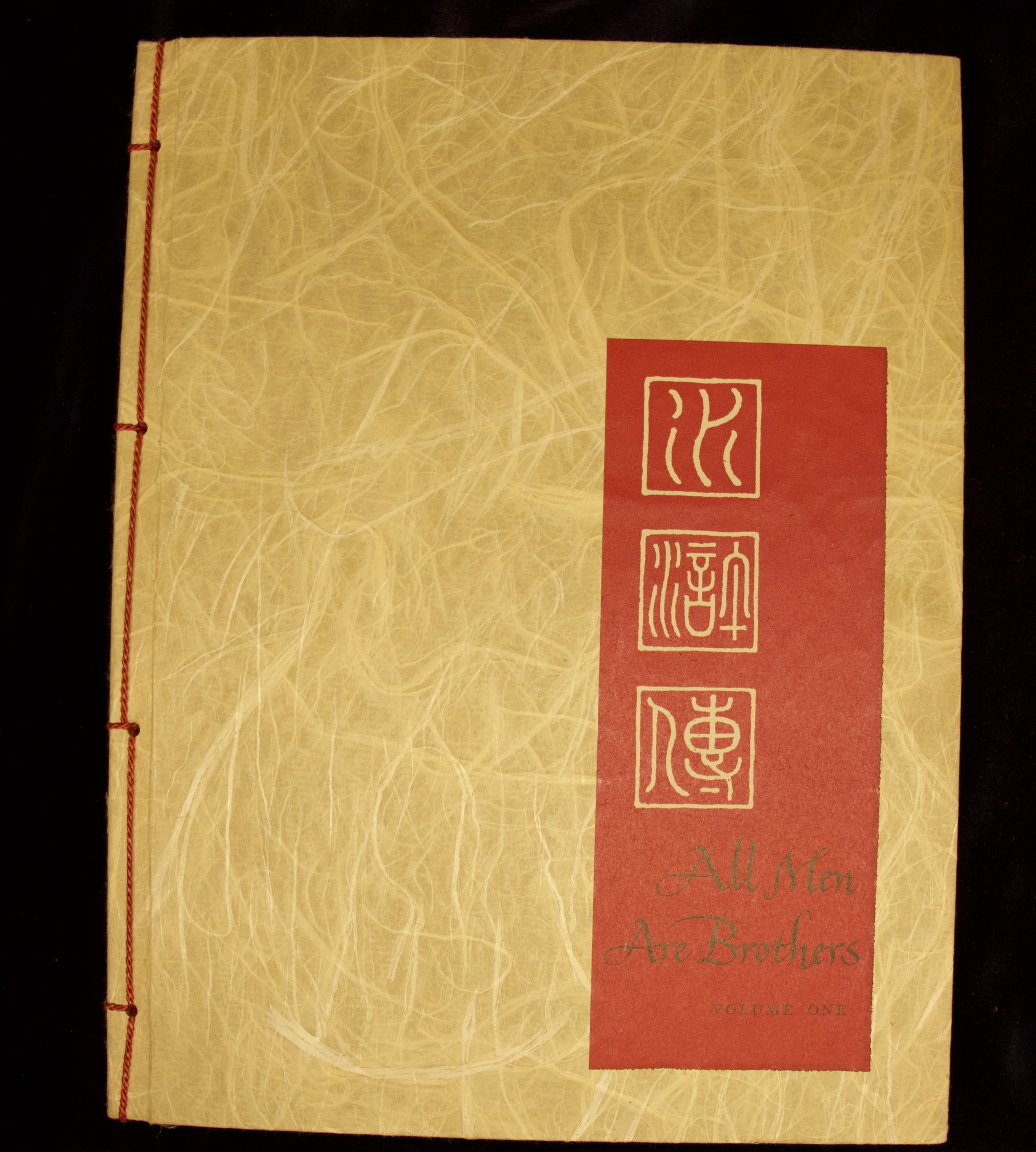
Cover; All men are brothers : (Shui hu chuan) / tr. from the Chinese by Pearl S. Buck. With an introduction by Lin Yutang and illustrations by Miguel Covarrubias. New York: For the Limited Editions Club, 1948. PL2694.S5 E52 1948
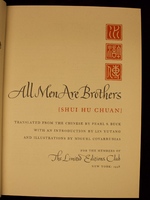
Title page; All men are brothers : (Shui hu chuan) / tr. from the Chinese by Pearl S. Buck. With an introduction by Lin Yutang and illustrations by Miguel Covarrubias. New York: For the Limited Editions Club, 1948. PL2694.S5 E52 1948
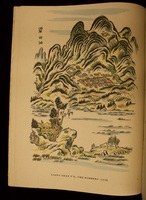
Illustration; All men are brothers : (Shui hu chuan) / tr. from the Chinese by Pearl S. Buck. With an introduction by Lin Yutang and illustrations by Miguel Covarrubias. New York: For the Limited Editions Club, 1948. PL2694.S5 E52 1948
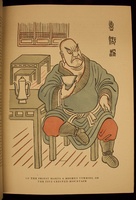
Illustration; All men are brothers : (Shui hu chuan) / tr. from the Chinese by Pearl S. Buck. With an introduction by Lin Yutang and illustrations by Miguel Covarrubias. New York: For the Limited Editions Club, 1948. PL2694.S5 E52 1948